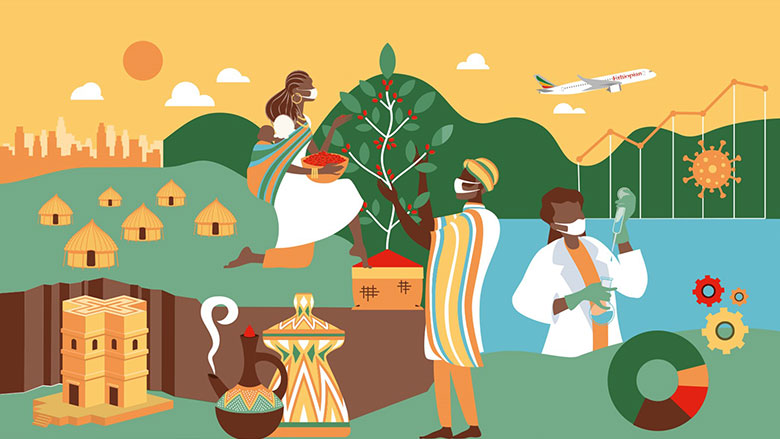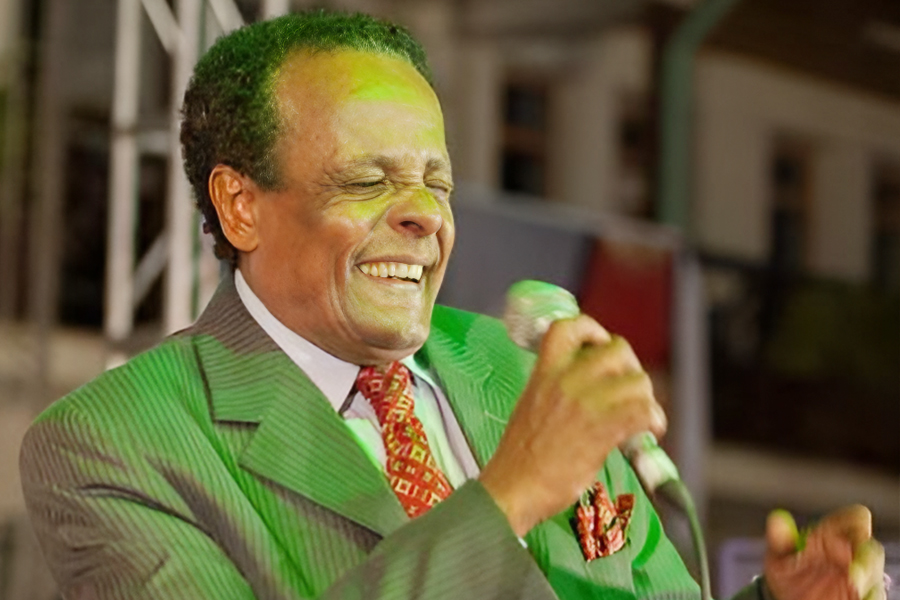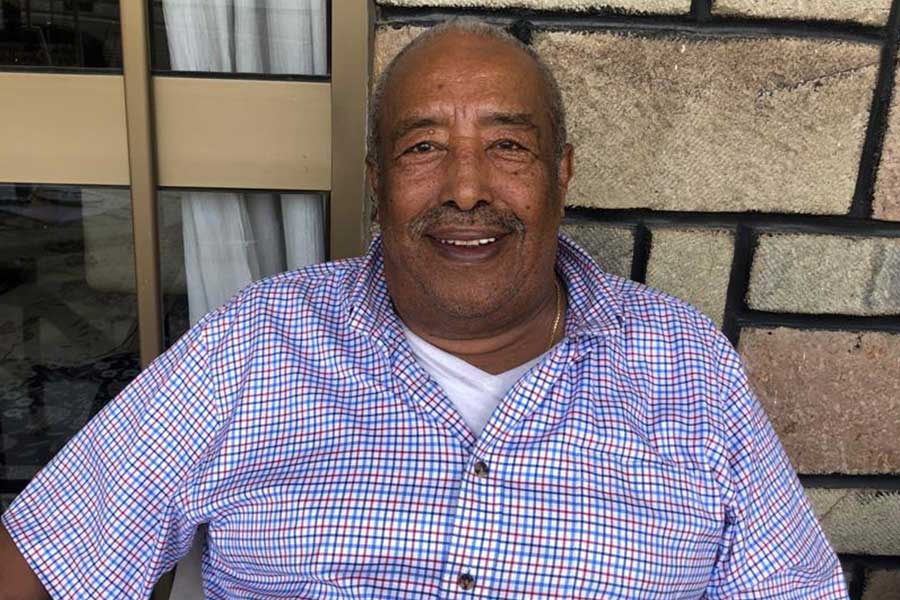
Covid-19 | May 01,2021
Jan 23 , 2021
By Christian Tesfaye
Human history has spanned tens of thousands of years; and written history, some millennia. There have been various types of governance systems, several iterations of social integration and split, and countless revolutions. And yet, something is wrong. Just by trial and error alone, most citizens of the world should be living with compatriots they agree with by now.
What then is the point of these many wars, conflicts, movements and revolutions if they have seemingly not gotten us to a point of ideological convergence? Why do we wage wars and stage revolutions today when it is clear that whatever system is brought forth will not last long or even create meaningfully durable peace and stability?
At best, it buys us some people time as they accumulate privilege and power, and if lucky, bail before things get too hot.
Francis Fukuyama’s "The End of History and the Last Man" was an imagining of an end to this uncertainty. He imagined a world ruled by a liberal democratic order, a utopia fashioned out of the ideals made popular by Enlightenment thinkers such as John Locke. And for a moment, he seemed to be right.
What better system would there be to replace liberal democracy? Why would humankind, having finally found the key to freedom, reason-based political systems backed by independent institutions, ever regress?
The ‘why’ is arguable, but the feared regression has occurred. A large part of the world does not find liberal democracy compatible with their cultures and politico-economic structures. In the Western world, whose culture is most attuned to institutionalisation of power and individualism, and whose populations are proud of the traditions that produced them, the culprit is a loss of privilege.
Sure, they love Thomas Jefferson but did he really mean that "all men are born equal”?
The unprecedented threat to democratic norms and institutions in the United States throughout the presidency of Donal Trump was perhaps the most extreme example of how "the end of history" that Fukuyama imagined is a long way off.
But what does it mean that one of the most progressive ideals humankind has come up with will not find general acceptance? Does it mean that we will never find a just system that we will agree on? Is this the new Dark Age, at least in terms of social and political progress?
It could be. It seems that most countries in the world have reached a wall. Their populations are absolutely divided over political situations. What is radical to someone is the only way forward for others.
It is no different in Ethiopia. In fact, political differences became rigid enough that it produced an armed conflict. The country almost saw its first peaceful transition of power. Almost. Instead, differences were too fundamental, too irreconcilable, our leaders insisted, they had to draw weapons against one another. It was a sad sight to behold.
One thing is for sure. The countries that are seeing social cleavages will not be able to fundamentally address them, perhaps not ever. The United States, France and the United Kingdom may have elections every half a decade or so, but each poll is a temporary redistribution of power. The elections are not in fact giving definitive answers.
Take the United States. Their election last year in November redistributed power from the Republicans to the Democrats. It did not solve the problems over which the candidates were campaigning though. Supporters of each party are far from reconciling over issues of race, historical memory and demographic changes. If voting patterns are indicative, and the behaviour of their elites, they hate each others' guts.
Ethiopia has also had a redistribution of power over the past three years. The only difference is that we do not do this through elections. Historically, we have done it through armed conflict.
Has it addressed fundamental problems?
Despite the death and destruction it has wrought, and whosoever's fault it was for the metaphorical first shot, it has probably made political circumstances more precarious. Our people are not more accepting of the views of one another than before. There remain unaddressed social cleavages.
But just because our differences are seemingly insurmountable, it does not mean we need to give up attempting to persuade one another. Otherwise, nothing short of forcing one’s political views on an opponent will suffice. And this is not sustainable. There will come a time when tables will be turned - on and on it will continue. A country such as Ethiopia, where power has been redistributed without meaningfully addressing fundamental political problems, should know that there is no better route than attempting to engage only with ideas.
PUBLISHED ON
Jan 23,2021 [ VOL
21 , NO
1082]


Covid-19 | May 01,2021

Commentaries | Apr 25,2020

Viewpoints | Feb 13,2024

Obituary | Mar 02,2024

Obituary | Jul 13,2020

My Opinion | Jul 13,2020

Radar | Oct 03,2020

Obituary | Feb 02,2019

Commentaries | Feb 20,2021

Viewpoints | Apr 13,2019

My Opinion | 132040 Views | Aug 14,2021

My Opinion | 128436 Views | Aug 21,2021

My Opinion | 126362 Views | Sep 10,2021

My Opinion | 123981 Views | Aug 07,2021





Dec 22 , 2024 . By TIZITA SHEWAFERAW
Charged with transforming colossal state-owned enterprises into modern and competitiv...

Aug 18 , 2024 . By AKSAH ITALO
Although predictable Yonas Zerihun's job in the ride-hailing service is not immune to...

Jul 28 , 2024 . By TIZITA SHEWAFERAW
Unhabitual, perhaps too many, Samuel Gebreyohannes, 38, used to occasionally enjoy a couple of beers at breakfast. However, he recently swit...

Jul 13 , 2024 . By AKSAH ITALO
Investors who rely on tractors, trucks, and field vehicles for commuting, transporting commodities, and f...

Jul 12 , 2025
Political leaders and their policy advisors often promise great leaps forward, yet th...

Jul 5 , 2025
Six years ago, Ethiopia was the darling of international liberal commentators. A year...

Jun 28 , 2025
Meseret Damtie, the assertive auditor general, has never been shy about naming names...

Jun 21 , 2025
A well-worn adage says, “Budget is not destiny, but it is direction.” Examining t...

Jul 13 , 2025 . By YITBAREK GETACHEW
The Addis Abeba City Revenue Bureau has introduced a new directive set to reshape how...

Jul 13 , 2025 . By BEZAWIT HULUAGER
Addis Abeba has approved a record 350 billion Br budget for the 2025/26 fiscal year,...

Jul 13 , 2025 . By RUTH BERHANU
The Addis Abeba Revenue Bureau has scrapped a value-added tax (VAT) on unprocessed ve...

Jul 13 , 2025 . By NAHOM AYELE
Federal lawmakers have finally brought closure to a protracted and contentious tax de...